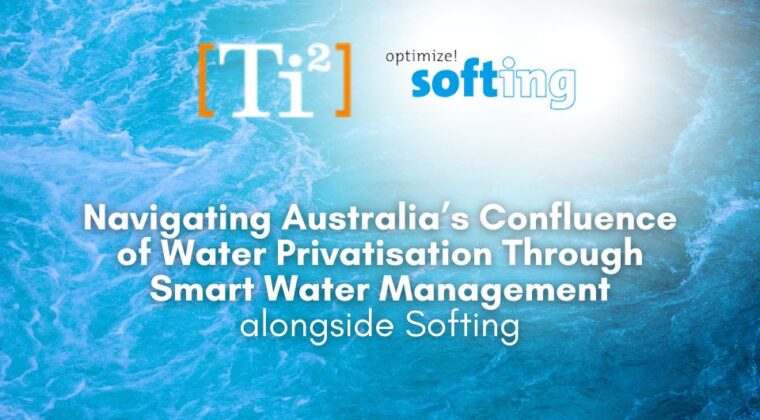
Table of Contents:
1. Introduction
– The Challenge: Water Privatisation, Automation, and Social Equity
– The Role of Automation Engineers
– Softing: A Leading Automation Solutions Provider
2. The Problem
– Impact of Water Privatisation on Social Equity
– Automation and Social Disparities
– Threats to Equitable Water Distribution
3. The Solution
– Implementing Smart Water Management
– Enhancing Data Integration
– Promoting Inclusivity in Automation
4. The Action Plan
– Raising Awareness and Advocacy
– Collaborating with Communities
– Supporting Workforce Reskilling
– Best Practices
5. Conclusion
– Embracing the Role of Automation Engineers
– Ensuring Clean Water for All
– Collaborative Efforts for a Sustainable Future
Introduction:
The challenge of water privatisation, automation, and social equity remains a pressing issue, even in modern-day Australia. As automation engineers, we understand the significance of our role in addressing this multifaceted problem. This blog explores the impact of water privatisation in Australia and propose solutions to foster social equity and ensure universal access to clean water alongside Softings.
Water Privatisation in Australia:
Australia’s ongoing struggle with water privatisation is a critical concern that demands our attention. “The Fiscal, Economic, and Public Health Dangers of Water Privatisation” report by The Australia Institute, sheds light on the implications of privatising water services. The report delves into the challenges faced by Australian communities due to privatisation policies and the potential risks posed to public health and social equity.
According to the mentioned report, key data highlights include:
1. Financial Burden: Water privatisation can lead to increased water costs for consumers, placing an undue financial burden on households and communities. This financial strain disproportionately affects vulnerable and marginalised populations.
2. Impact on Public Health: The privatisation of water services may compromise water quality and sanitation standards, potentially contributing to health risks and disparities, particularly in underserved communities.
3. Environmental Concerns: Private water companies may prioritise profit over environmental sustainability, leading to inadequate water resource management and potential environmental degradation.
4. Inequitable Access: Privatisation could exacerbate disparities in access to clean water, impacting lower-income communities the hardest and impeding progress towards social equity.
The Problem:
An objective analysis of water privatisation and automation reveals potential threats to equitable water distribution. Privatisation’s impact on accessibility, affordability, and transparency may conflict with automation’s promise of efficiency, which may introduce job displacement and social disparities. Understanding this challenge is vital, as it can significantly affect marginalised communities’ access to clean water.
The Solution:
To tackle the water privatisation and automation challenge, Softing’s automation solutions offer promising avenues for addressing key issues:
1. Implementing Smart Water Management:
Softing’s automation solutions enable us to optimise water treatment processes, ensuring consistent water quality. Leveraging automation technologies allows us to monitor water flow, detect leaks, and optimise resource usage, promoting equitable access to clean water. Additionally, smart sensors and IoT devices facilitate real-time data analysis, enhancing transparency in water management.
2. Enhancing Data Integration:
Through Softing’s communication and connectivity solutions, we centralise data platforms, enabling comprehensive insights into water management processes. Utilising data analytics, we can identify patterns and trends, leading to data-driven decisions that support equitable water distribution and resource allocation.
3. Promoting Inclusivity in Automation:
Collaborating with UX designers, Softings develop user-friendly interfaces for automation tools, catering to individuals with varying technological literacy. Implementing language support ensures inclusivity for diverse linguistic backgrounds. By offering user training, we empower water management personnel and stakeholders to navigate automation tools effectively.
The Need for Collective Action:
Australia’s experience with water privatisation highlights the urgency of our collective efforts to navigate these challenges. As automation engineers, we can leverage Softing’s automation solutions to enhance water management practices and promote social equity. By embracing data-driven decision-making, inclusive approaches, and collaborative initiatives, we steer towards a future where clean water is a universal right, accessible to all communities, irrespective of their social standing. Several action plan to foster social equity in water management includes:
1. Raising Awareness and Advocacy:
Engineers, executives, and technicians must advocate for transparent and fair water privatisation policies to prioritise social equity. Raising awareness about the significance of equitable access to clean water is crucial in both organisations and communities.
2. Collaborating with Communities:
Engaging with community leaders helps us gain insights into local needs, enabling us to develop tailor-made solutions for water management challenges. This approach ensures that affected communities are integral to the decision-making process.
3. Supporting Workforce Reskilling:
Collaborating with training institutions allows us to offer reskilling programs for workers impacted by automation, creating equitable employment opportunities during times of transition.
4. Sharing Best Practices:
Creating platforms for knowledge-sharing and collaboration within the industry facilitates the dissemination of successful practices in addressing water privatisation and automation challenges, fostering collective learning.
Conclusion:
In conclusion, water privatisation continues to be a significant issue facing Australia, impacting access to clean water and exacerbating social equity concerns. A rational exploration of water privatisation, automation, and social equity with the support of Softing’s automation solutions reveals promising avenues to address the challenges at hand. As automation engineers, our objective is to foster social equity and ensure universal access to clean water. Through data-driven decision-making, inclusive practices, and collective efforts, we navigate towards a future where clean water is not a privilege but a fundamental right accessible to all Australians.
Read more about Softings’ solution for digital process automation for water and waste water HERE.
Contact us HERE to learn more about Softings and how it can help your automation projects to unlock its benefits and drive innovation in your industry.
Or to learn more about what we can do to help your automation requirements, please click projects, products & services.
Ti2 is currently very focused on working with its global partners to secure stock and avoid long delay times in delivering products to their customers. Together with our trusted partners, we are here to provide solutions for your needs.
Please click here to email us your inquiry, we would like to hear from you.
